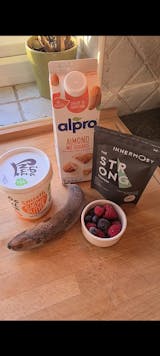Whilst our focus on mental health and the wellbeing of the population should always be of paramount importance, arguably, now more than ever, we need to be taking care of ourselves.
Following two years of (seemingly never ending) restrictions in response to the ongoing pandemic, it’s likely that everyone that we meet has struggled in some way or another with the changes to everyday life, and it’s also likely that this has had detrimental effects on people’s mental health. In fact, a study by the NHS has noted that one in six adults in the United Kingdom have experienced a form of depression in the first Summer of the pandemic alone. And that’s not even considering people that are struggling as a result of other influences (or no influence at all), or were struggling before the pandemic, too.
With mental health issues affecting so many of our population, it’s hugely important that the strategies and techniques put in place by our health service are adequate. Not just adequate, in fact, but good. Really, really good.
What are the current NHS guidelines around mild depression treatment?
In terms of how the NHS has previously helped those suffering with mental health problems such as depression, England is one of the world leading destinations in the prescription of anti-depressants, with our usage suggesting that over seven million people are using these as a strategy to combat their mental health issues.
The current guidelines detail a process that identifies the severity of the individual’s condition from a Clinician’s point of view. Following this assessment, a range of treatments and therapies are considered and implemented.
Common treatments for mild depression
Mental health treatments and therapy for depression vary from person to person, but the current guidelines note that an array of strategies can be used – either individually, or in conjunction with each other, to make a positive impact on anyone that is suffering.
Treatments for mild depression include:
- Combination therapy
- Self-help exercises
- Exercises
- Interpersonal therapy
- Cognitive Behavioural Therapy (CBT)
- Psychotherapy
- Counselling
- Psychodynamic Psychotherapy
The type of therapy and treatments selected for the individual’s treatment of mild depression varies on their symptoms (and their severity of these), the length of time of suffering, and following a review of potential other health problems that could mean that certain therapies or medications aren’t suitable.
Potential options for medication for depression include:
- Selective Serotonin Reuptake Inhibitors (SSRIs)
- Vortioxetine
- Tricyclic Antidepressants
- Beta-blockers such as Propranolol
Why are the NHS guidelines for the treatment of mild depression changing?
Guidelines around the treatment of mild depression haven’t been updated for over a decade, and with the world (and the way we live) changing so much in that time, it’s important that treatments and evaluations around mental health issues are up to date.
Currently, patients identified to be struggling with mental health issues are offered a range of treatments, with those including psychological intervention and medication in the first instance.
What are the new guidelines around treatment for depression?
The new guidelines outline that those with mild depression should first be offered therapy treatments that do not immediately include medication.
These treatments include:
- Exercise
- Mindfulness
- Meditation
- Talking therapies
The changes are mostly aimed at those that are suffering with more mild instances of mental health issues and depression and aim to get sufferers involved in the conversation with their health provider around the best treatments for themselves. The treatments, say Dr Paul Chrisp – Director for the Centre for Guidelines at Nice, has stated that the Covid-19 pandemic has meant that our responses towards mental health crises need to be more flexible, and this change in guidelines is something that allows this to happen.
How can I help someone struggling with mild depression?
In order to be able to accurately and successfully help others around us, it’s important to be able to spot the symptoms of mental health issues. Whilst the symptoms of mental health issues can vary (drastically) from person-to-person, it’s important to be on alert for any potential changes from someone’s usual behaviour, no matter how big or small.
Here are the symptoms of mild depression:
- Frequently down or upset
- Tearful and sensitive
- Reports of feeling empty or numb
- Feelings of guilt or worthlessness
- An unnerving sense of unreality
- Low self-confidence or lack of self-esteem
- Agitated or irritability
Summary
If this change in guidelines is something that is causing you stress or anxiety, try and calm down and remember that ultimately, this is your treatment, and you are free to talk with your GP or counsellor to ensure that you are happy with the treatment you are receiving.
Here at Innermost, we are keen to reiterate that above all, it’s hugely important to ensure that you are receiving the care and support you need. Whether that means you just need someone to talk to, or you need to take steps to access higher help, try and remember that everyone struggles. You are not alone and these struggles are nothing to be ashamed about.
If you need some assistance when it comes to deciding how to approach this topic with someone that you love and trust, check out our piece with a mental health professional around opening up these discussions around therapy for depression.
However, if this isn’t an option you feel that you can take, check out the below list on apps, helplines and organisations that can help you:
Look after yourself Innermosters. We’re here if you need us.























